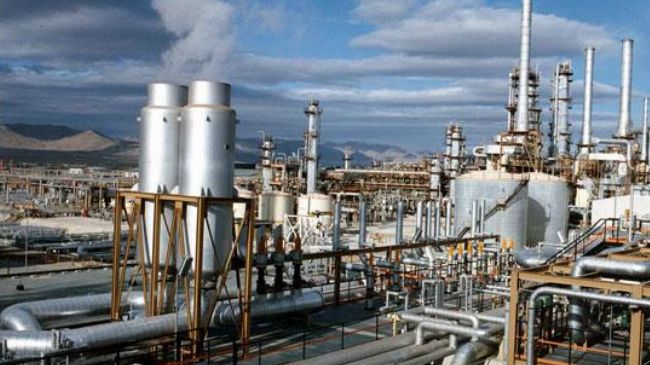Iran eyes new markets to boost gas exports

By Sara Rajabova
After the foreign companies expressed readiness to return to the country if sanctions are lifted, the Iranian government began talks with some companies.
Iranian Oil Minister Bijan Namdar Zanganeh said that Iran have started gas negotiations with Russia's Gazprom Company and the representatives of the Russian government.
Zanganeh said Iran has also good relations with Algeria which is one of the world's biggest gas suppliers, IRNA News Agency reported.
"Countries like Oman and Qatar are more experienced in the gas exporting market so we can use their experiences to improve the country's gas exports," he added.
Zanganeh went on to note that Iran eyes new markets such as India, Europe, and Turkey for exporting gas.
He said Iran's first priority is exporting gas to neighboring countries, since no country in the region except for Iran and Qatar has gas surplus.
Zanganeh said in late October that the country is also looking to sign deals for gas exports to Oman and the United Arab Emirates.
In August, Iran and Oman signed an agreement on the export of Iranian gas to the Persian Gulf states.
Under the contract which is worth more than $60 billion, Iran will be delivering gas to Oman for 25 years.
Also, Turkey is still willing to continue its cooperation with Iran in the field of energy.
Turkish Energy Minister Taner Yildiz earlier called Iran one of the most important countries in the world that has rich oil and gas resources, and said that Turkey will continue its projects in the energy sector.
On the other hand, Iran is in talks for exporting natural gas to a European country.
An Iranian official said according to negotiations between senior Iranian energy officials and a European country, that he did not name, Iran is due to supply gas the given European nation via Turkey, Fars News Agency reported recently.
Negotiations started in the early summer, but the talks stopped due to the international sanctions. Recently, the European country has called for resuming the talks.
Talks have also been conducted with some European banks to handle money transfer services.
The European country has voiced interest for importing 20-25 million cubic meters of Iranian gas per day.
According to Fars, the two sides will hold talks in the next two months to finalize an agreement.
Iran's ex-oil minister Gholamhossein Nozari has said that the new Iranian administration should focus on exporting natural gas as its trump card in regional and international relations.
According to Nozari, the country should seriously plan to boost natural gas exports to its neighboring countries and even to Europe.
"Considering the intensified international sanctions on the country's oil sector, the priority should be placed on the development of the gas industry as the country seeks a trump card in international diplomatic relations," he said.
Iran is currently producing 300 million cubic meters of gas per day from the South Pars field.
The South Pars/North Dome field is a gas field located in the Persian Gulf. It is the world's largest gas field and is shared by Iran and Qatar. The field's recoverable gas reserves are estimated to be equivalent to 215 billion barrels of oil. It also holds about 16 billion barrels of recoverable condensate.
The South Pars field, which is divided into 29 phases, has about 14 trillion cubic meters of gas, or about eight percent of total world reserves.
According to Doctoral Candidate and Research Fellow with the Berlin Centre for Caspian Region Studies (BC CARE) at the Free University of Berlin David Ramin Jalilvand, by 2025, it seems realistic for Iran to have increased gas exports to Turkey, Armenia, and Azerbaijan to the contractual levels of 10, 2.3, and 0.5 bcm/y respectively.
Jalilvand said Pakistan and Iraq could by then have become new customers of Iranian gas with imports of 8 and 7.3-9.1 bcm/y.
He also noted that the realisation of global export projects, however, would require fundamental change in Iranian-Western relations.
Jalilvand said with the current EU and U.S. sanctions regime in place, both the attractive European gas market as well as the latest liquefied natural gas (LNG) technology are effectively out of reach for Iran.
The United States and the European Union imposed sanctions on Iran's oil and financial sectors with the goal of preventing other countries from purchasing Iranian oil and conducting transactions with the Central Bank of Iran.
Iran's crude oil is subject to a European Union embargo that started on July 1, 2012.
Iran is one of the world's biggest oil and gas exporters and its economy is heavily dependent on energy revenues.
Iran, which sits on the world's second largest natural gas reserves after Russia, has been trying to enhance its gas production by increasing foreign and domestic investment, especially in its South Pars gas field.
